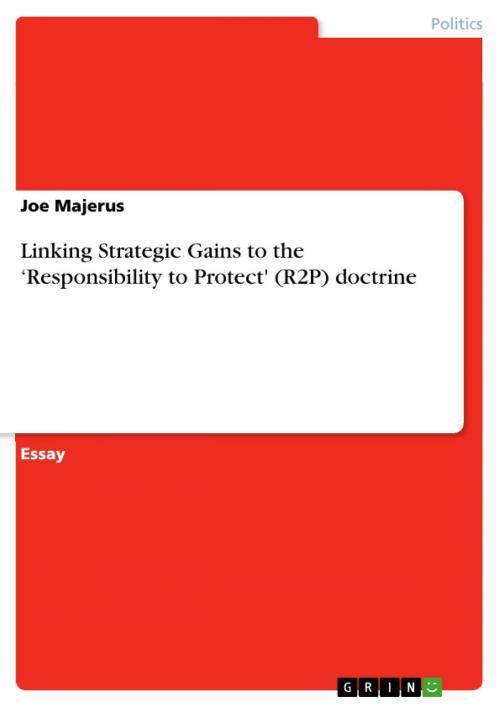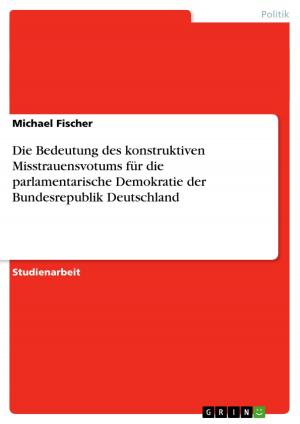Linking Strategic Gains to the 'Responsibility to Protect' (R2P) doctrine
Nonfiction, Social & Cultural Studies, Political Science, International, International Relations| Author: | Joe Majerus | ISBN: | 9783656844945 |
| Publisher: | GRIN Verlag | Publication: | November 24, 2014 |
| Imprint: | GRIN Verlag | Language: | English |
| Author: | Joe Majerus |
| ISBN: | 9783656844945 |
| Publisher: | GRIN Verlag |
| Publication: | November 24, 2014 |
| Imprint: | GRIN Verlag |
| Language: | English |
Essay from the year 2014 in the subject Politics - International Politics - General and Theories, grade: 71/100, University of Leicester, language: English, abstract: The 'Responsibility to Protect'-Doctrine (R2P) is not as much an obstacle to ending human suffering in war-torn countries as its detractors maintain. Originally conceived as a UN-sponsored attempt to provide the international community with a more efficient instrument for preventing or halting mass violence and human rights violations, it was hoped that R2P would overcome the controversies frequently associated with humanitarian interventions. Yet ever since its conception, R2P has likewise met with extensive criticism in regard to some of its key tenets. In particular it is argued that a potential military intervention in governments' internal affairs not only constitutes an encroachment upon state sovereignty, but also merely serves as a pretext of stronger states to impose their will upon weaker ones.
Essay from the year 2014 in the subject Politics - International Politics - General and Theories, grade: 71/100, University of Leicester, language: English, abstract: The 'Responsibility to Protect'-Doctrine (R2P) is not as much an obstacle to ending human suffering in war-torn countries as its detractors maintain. Originally conceived as a UN-sponsored attempt to provide the international community with a more efficient instrument for preventing or halting mass violence and human rights violations, it was hoped that R2P would overcome the controversies frequently associated with humanitarian interventions. Yet ever since its conception, R2P has likewise met with extensive criticism in regard to some of its key tenets. In particular it is argued that a potential military intervention in governments' internal affairs not only constitutes an encroachment upon state sovereignty, but also merely serves as a pretext of stronger states to impose their will upon weaker ones.















